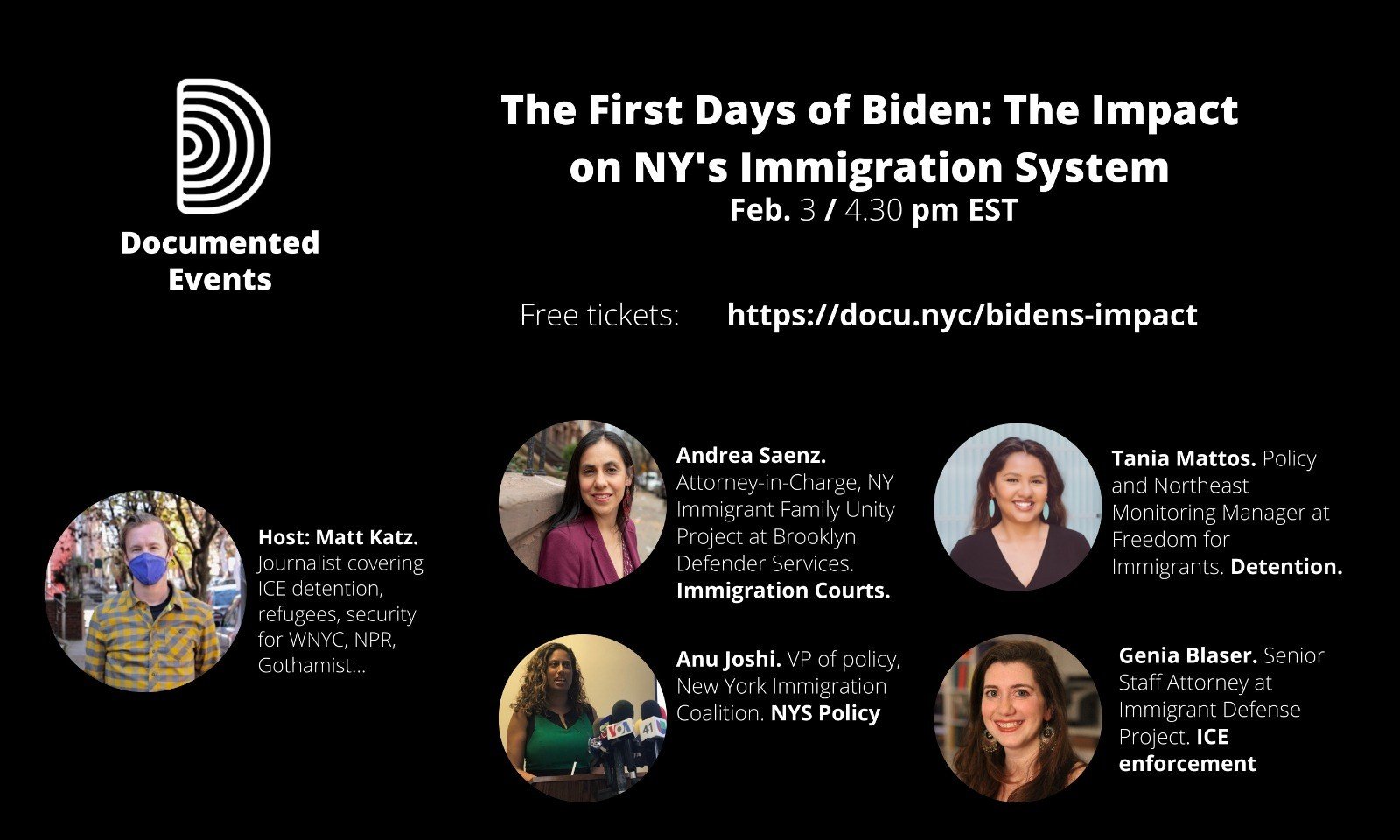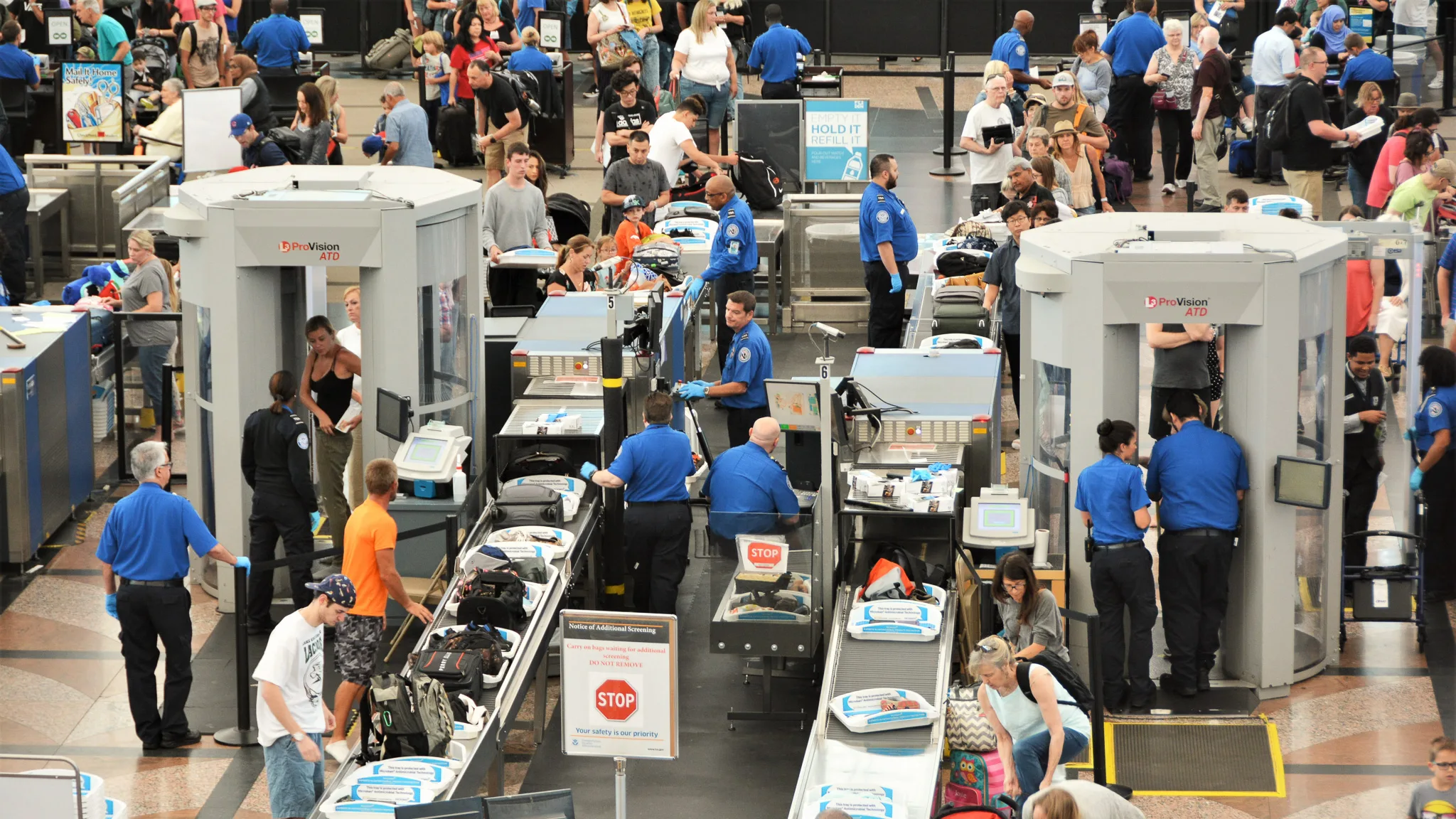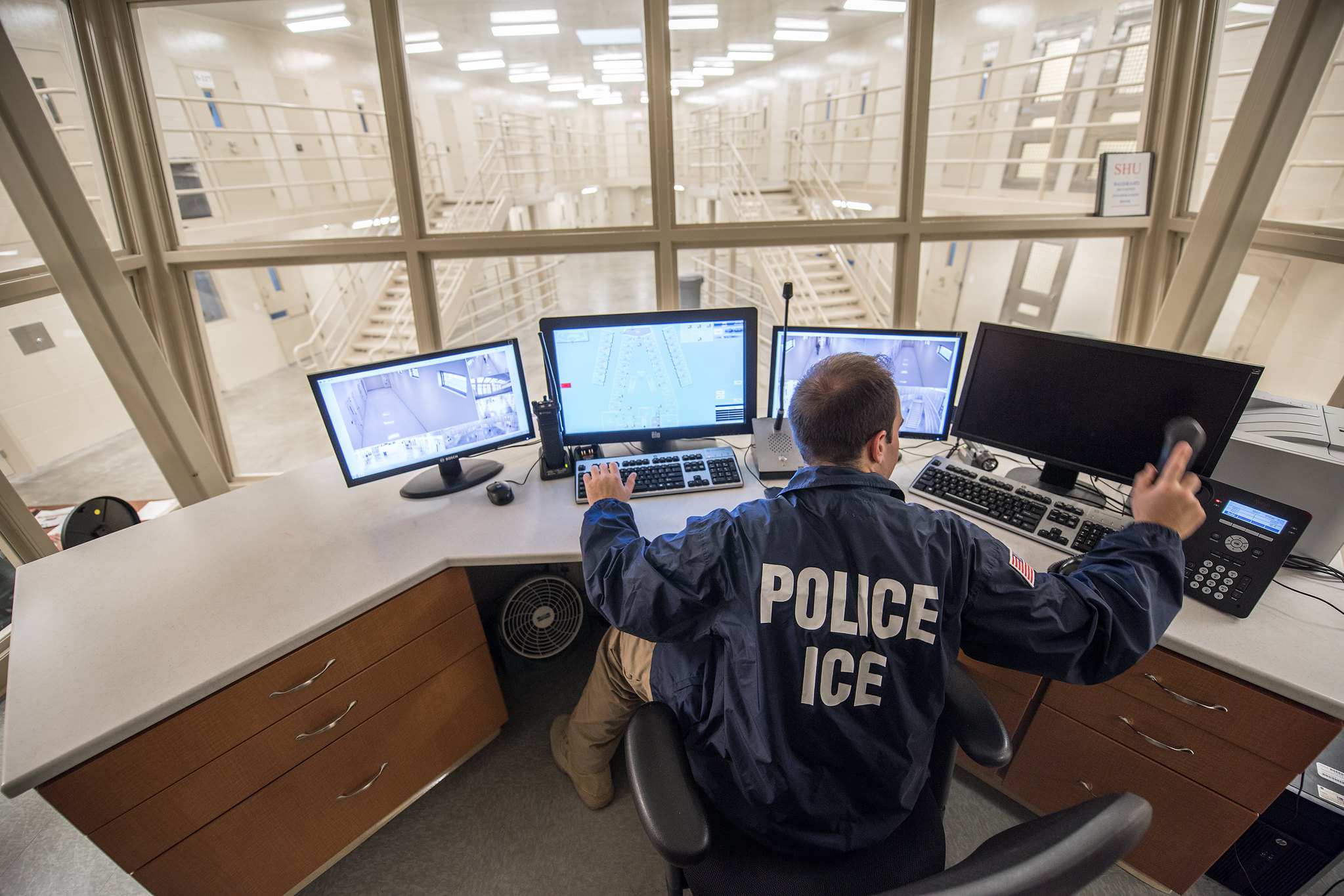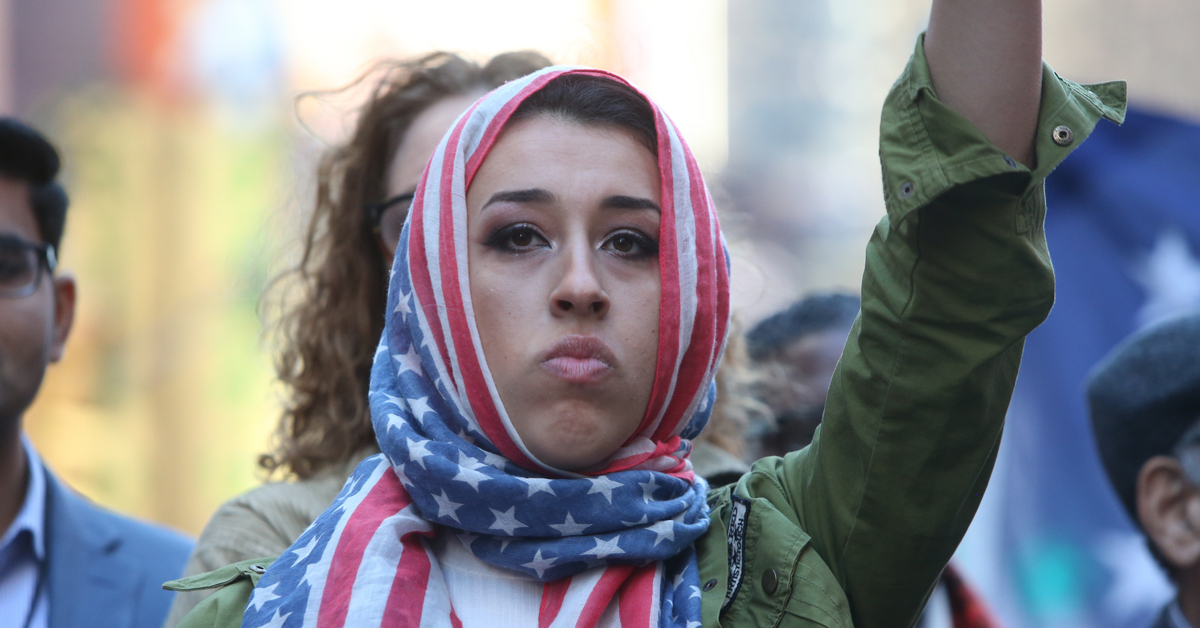Documented hosted its first panel discussion on how the presidency of Joe Biden impacts New York’s immigration system and what it means for immigrant New Yorkers. Matt Katz, a reporter for WNYC/Gothamist who produces award-winning coverage of immigration enforcement and detention centers, moderated the panel with experts on U.S. Immigration and Customs Enforcement, the immigration courts, New York State policy, and detention.
The event was the first in an event series hosted by Documented as part of the Documented Community membership program. Future events and their recordings may be restricted to Documented members only. You can signup to become a member here.

With Biden in office for only two weeks, Genia Blaser, a senior staff attorney at Immigration Defense Project, noted that he has issued a deportation moratorium and ordered a review on ICE’s enforcement operations and detention practices, acknowledging that ICE has caused harm within the immigrant community. She believes that the real question is if his policies will continue to fuel criminalization of immigrants and how far the administration is willing to address the damage caused by the U.S. Department of Homeland Security and the immigration system.
Blaser said that under Biden, ICE continues to rely on the criminalization of immigrants to make arrests, which also occurred under former Presidents Barack Obama and Donald Trump. She explained that determining whether a person should be deported based on their criminal records is a false narrative that the agency used over the years. “Our current immigration system was designed to cause harm and make it as easy as possible to deport people who have had criminal contact,” she said. “We must disentangle our criminal and immigration systems and push the Biden administration towards this.”
Also Read: How the FBI Coerced This Muslim Immigrant Into Working as an Informant
Andrea Sáenz, Attorney-in-Charge of the New York Immigrant Family Unity Project at Brooklyn Defender Services, pointed out that Biden has not made any actions in regard to the immigration courts, where his predecessor made radical changes. In-person immigration hearings are currently happening throughout the country, including in states that have high COVID-19 rates.
Sáenz mentioned that there are about 1.3 million pending immigration cases that still need to be looked at. “Cases just poured into the immigration courts without any way to fairly adjudicate them or any system for executive prosecutorial discretion,” she said. Sáenz emphasized that the Board of Immigration Appeals had been packed with some of the most anti-immigration judges in the country.
Many of the immigration judges hired by the Trump administration mainly came from previous jobs with ICE or the military and often had little immigration law experience. The former administration also issued memos encouraging faster case processing by removing judges’ discretion to close cases. These are among the many issues that need to be addressed by the Biden administration, she said.
Documented sent a team of reporters to cover New York City’s immigration courts and observe the numerous ways the Trump administration upended it. We called the project Immigration Court Watch. Read all of our coverage here.
Anu Joshi, Vice President of Policy at the New York Immigration Coalition, spoke about the influence state governments can have on their immigration communities and that they have the ability to change history for a more inclusive future for immigrants. Joshi mentioned that during Obama’s presidency, some states, such as Arizona, Alabama and Georgia, responded to his administration by passing anti-immigration legislation, such as Arizona’s “Show Me Your Papers” law.
“What we know is that the far right from the anti-immigrant movement in this country has long understood the importance of using states as a testing ground from their anti-immigrant, racist laws,” she said.
Despite the recent passage of a law allowing undocumented immigrants to receive driver’s licenses, following a two decade fight, Joshi said New York is still behind when it comes to using local laws to protect immigrants.
Also Read: They Are Eligible to Stay in the US. Why Can’t They Get Their Green Cards?
Tania Mattos, Policy and Northeast Monitoring Manager at Freedom for Immigrants, shed some light on what has been occurring the last few months in detention centers while COVID-19 cases continued to rise.
“The amount of abuse that happens, it is literal torture that they are going through and it is not something that we should take lightly as New Yorkers and New Jerseyans,” she said, in reference to detention centers in New Jersey. “We have to demand that the local ICE offices release people and we have to demand that these counties and local governments close detention permanently.”
According to Mattos, local advocates are doing everything possible to improve their immigrant communities; they sent a proposed legislation to end the renewal of contracts that ICE has with New York and New Jersey county jails, nudging state officials who have a say in detention. They are also trying to push out commissioners and county freeholders that support keeping the contracts.
“If it’s not for organizers and communities and people impacted to push these administrations, we will not get anywhere, we will not get to the places that we need to get to,” she said.
If you want to support our work covering New York’s Immigration System, be invited to these events and get access to the recordings, please consider donating and becoming a member of our community.
















